One evening, fashion designer Alexandra Hartmann was walking down a street in her native Paris when she spotted a pair of old curtains – abandoned in front of a hotel in the city’s Belleville district.
“There was something that really kind of attracted me about the fabric, it was fascinating,” Hartmann tells CNN Travel.
Struck by the luxurious texture of the material and its eye-catching, reversible pattern, Hartmann’s creative side kicked in.
“I thought, wow I could make something very cool with this,” she recalls.
This serendipitous discovery marked the beginning of Hôtel – Hartmann’s curtain-turned-clothing fashion collection.
Now the designer regularly turns unwanted Parisian hotel curtains into beautiful jackets.
From curtain to catwalk
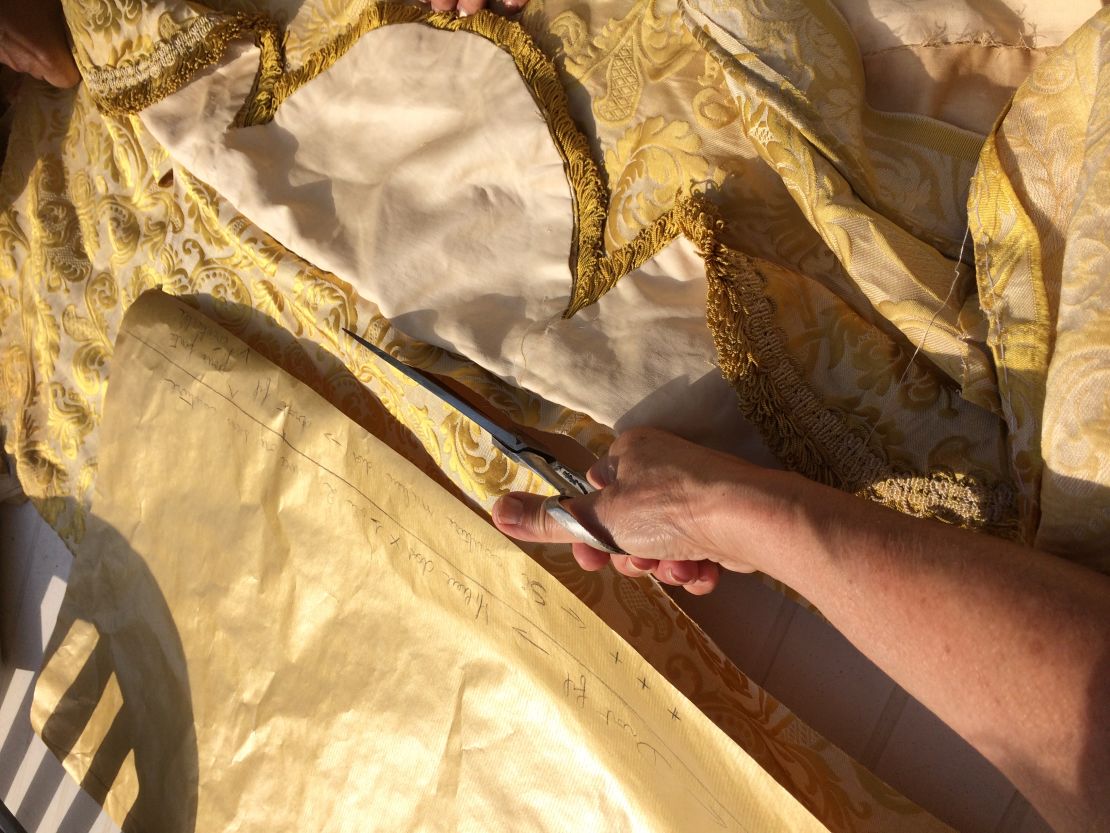
Hartmann made her first jacket out of the material she stumbled upon by accident.
It was just for fun, and just for her – until friends and family commented on the unique design, and she started to get requests.
So the designer contacted every Parisian hotel she could find – pitching them her concept and asking for unwanted curtains.
“Every hotel, motel, auberge – I just called everyone – and I started calling the really posh ones,” she says.
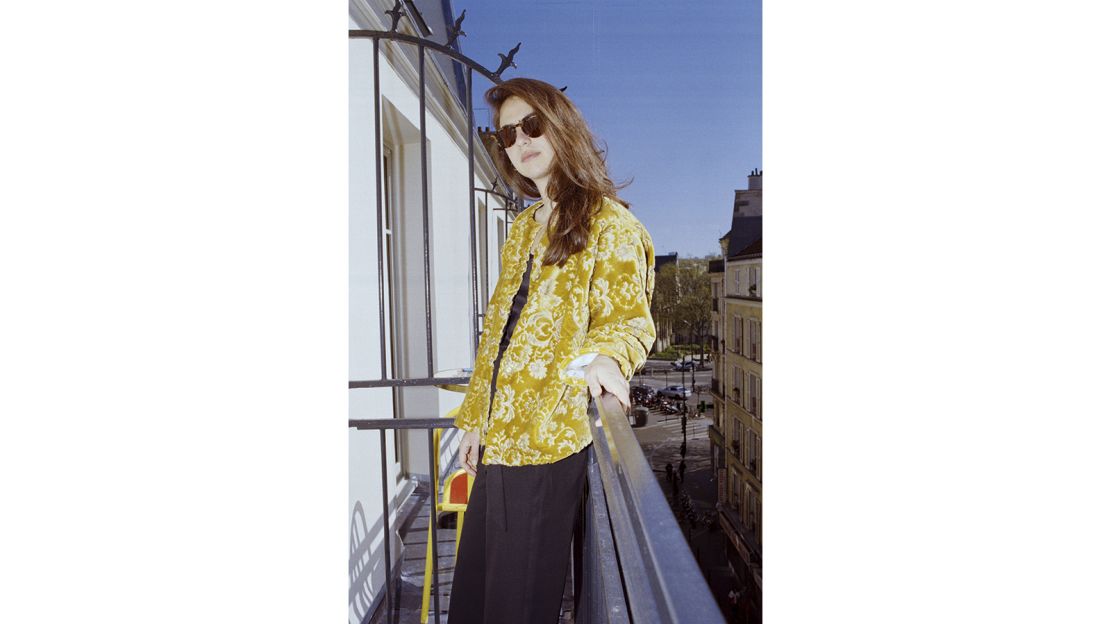
The response was mixed. “Some of them were so, so nice and some people were quite rude,” recalls Hartmann.
She namechecks budget Hotel Chevallier in Levallois as the first hotel that was “really nice and helpful.”
“We called everywhere,” she adds. “Not just the fancy ones.”
Thanks to perseverance, she acquired a diverse mix of unwanted drapes – enough to inspire her designs and kick-start her brand.
‘The story is woven into the fabric’
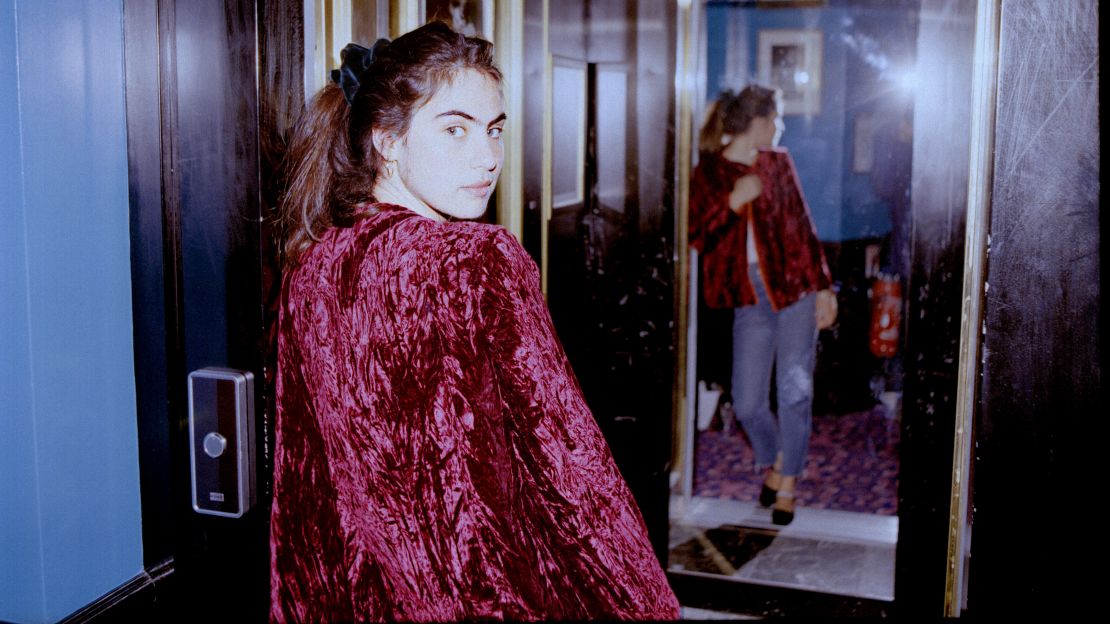
The process of transforming decades-old drapes into high-quality clothing is a complex one – not least because the amount of material is often limited.
“I’m not going to have a lot of meters of the fabric,” Hartmann explains. “So I need to think, what is the weight of it? How is it going to fall? How should it be cut?”
Each pair of curtains has a unique texture – and unique history, privy to the secrets and stories of hundreds of Parisian hotel guests.
Hartmann likes to reflect on this history as she reshapes the drapes for their new chapter.
“They all have a personality and it feels like the story is woven into the fabric,” she says. “I just really try and make something unique and special.”
Sustainable fashion
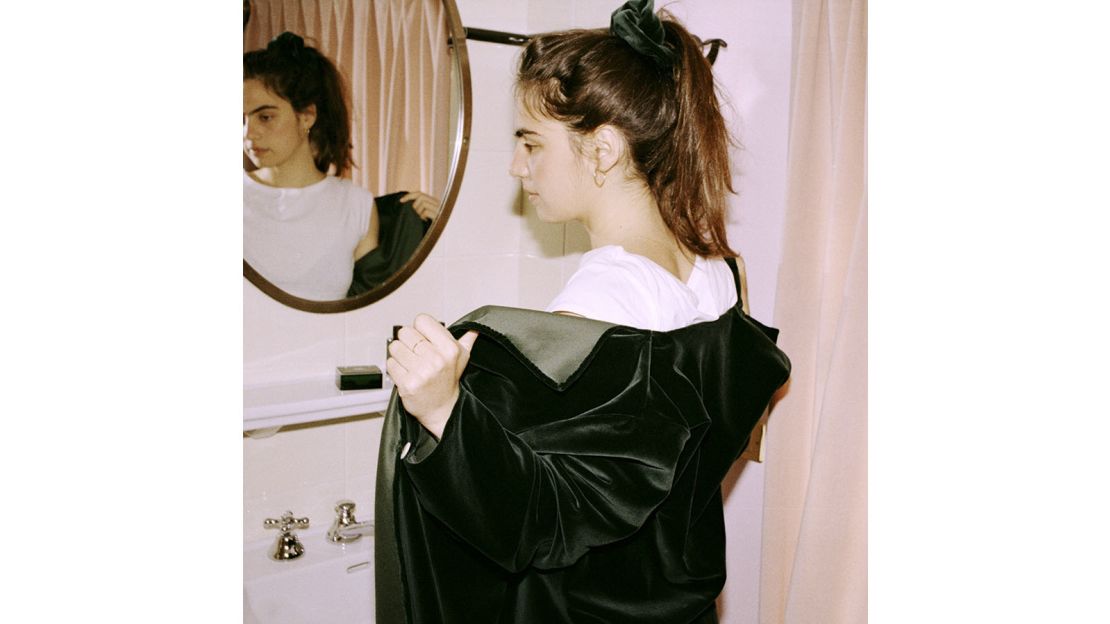
Hartmann is passionate about environmentally friendly couture and sees reusing curtains as a way to create clothing with a conscience.
“I’ve always been really passionate about sustainable fashion because I know how the industry works, and how fast fashion is,” the designer says. “Basically fast fashion is fast food,”
She contends that there’s a growing consumer interest in “upcycling,” the process of transforming unwanted items into new materials of better quality.
“I think people are really understanding more and more the impact fast fashion has,” says Hartmann.
French glamor
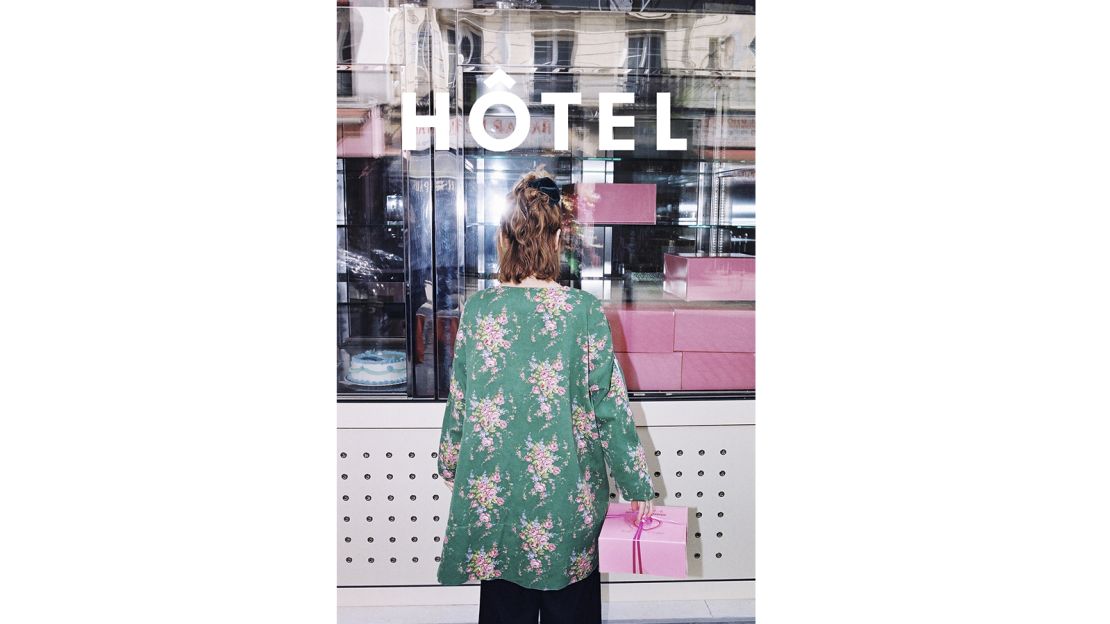
Now living in Copenhagen, Hartmann says Hôtel fuses her French roots with Danish influences.
“I have the minimalistic, simple cut that I have because I studied in Denmark,” she says. “But also because I’m Parisian, there’s some of this crazy, hotel fabric prints and embroidery.”
Despite the project being grounded in the stories and textures of Paris hotels, Hartmann and her team are now looking beyond the capital for inspiration.
“Right now we need to restock the fabric, we’re not just looking in Paris, we’re looking in France in general,” she says. “We recently did a capsule collection with some curtains from the south of France, from Provence.”
The key is finding great fabric, Hartmann says. She’s attracted to the luxury of vintage material: “This is when you realize that things used to have much more quality, these days the fabric it’s very poor.”
In good company
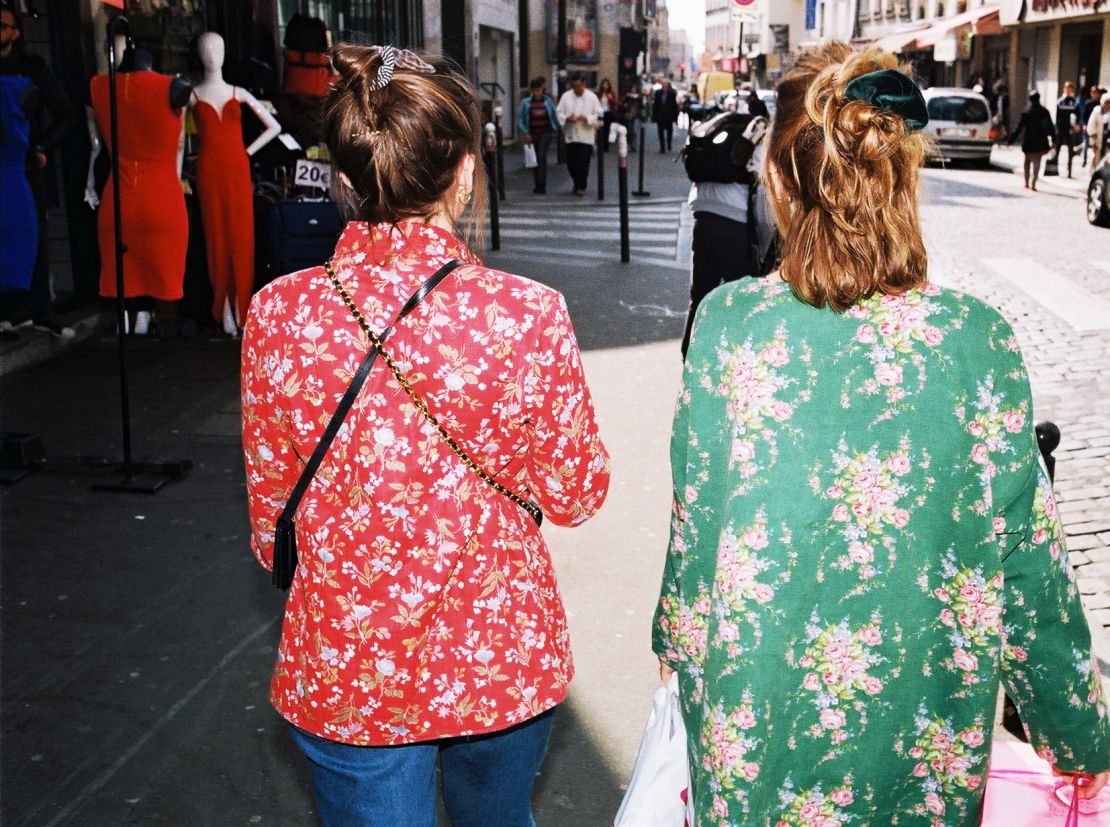
While Hartmann’s self-described “fun and quirky” project appears to be a unique enterprise, it does have some precedent, at least, on the silver screen.
In “Gone with the Wind,” Scarlett O’Hara, played by Vivien Leigh, wears a dress created from drapery.
And in 1965’s “The Sound of Music,” Julie Andrews’ governess makes clothes for her young charges out of old curtains.
Asked if the musical was part of her inspiration, Hartmann laughs.
“That’s really funny because I remember seeing that film when I was a kid,” she says. “But I hadn’t thought about it all!”
Instead, she says her project took off unexpectedly, and gradually.
“I took it all step-by-step and then was thinking, am I really doing this? Is this too weird?” she says.
“I just had fun doing it, I knew I liked it – and if I liked it maybe someone else would like it.”

















